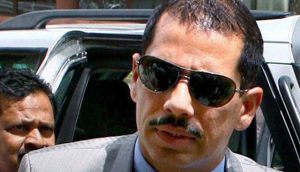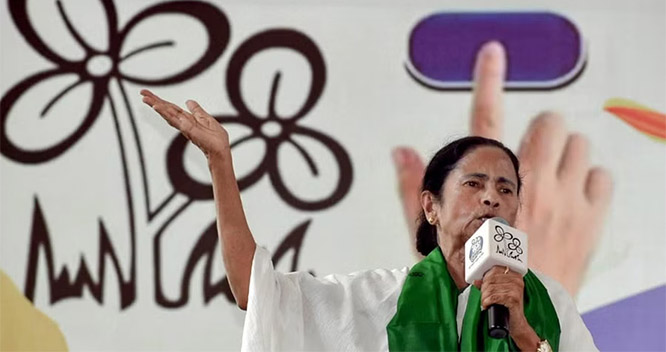New Delhi, Apr 28: Congress president Sonia Gandhi`s son-in-law Robert Vadra made an "illegal profit" of over Rs 50 crore from a 2008 land deal without investing a penny, according to a panel that probed suspect Haryana land deals.

The Economic Times citing unnamed people familiar with the SN Dhingra commission report said the committee had probed transactions between Onkareshwar Properties and Vadra-owned Skylight Hospitality and subsequently between Skylight and developer DLF.
The Dhingra commission investigated over 20 properties said to have been purchased by Vadra and his companies, said the paper.
The panel has observed an alleged collusion between dealers and the then Congress government of Bhupinder Singh Hooda, aimed at benefiting Vadra`s Skylight. The commission was set up by the Manohar Lal Khattar`s BJP government in May 2015 to look into the grant of licences for change in land use in four villages of Gurgaon, including the licence granted to Skylight.
The Economic Times said the Vadra-owned hospitality firm had bought land from Onkareshwar Properties.
In response to the paper, Vadra`s lawyer said the company or his client had "committed no wrong and no laws were violated." Priyanka Gandhi Vadra in a statement on Thursday said the agricultural land bought by her in in Amipur village of Faridabad district or other property acquired by her had "no links to finances of her husband, his Skylight Hospitality or reality major DLF".
She said the land was purchased for Rs 15 lakh through cheque, which comes to Rs 3 lakh per acre.
The statement said the funds for the purchase came from rental income of Priyanka Gandhi Vadra from property inherited by her from her grandmother Indira Gandhi.
The commission has observed that while reviewing the land transferred to Vadra`s company, the sale deed was executed in favour of Skylight for zero payment.
The land was then sold to DLF at a much higher price after the change in land use, resulting in the Rs 50.5-crore profit.
"Other properties may have been bought with such funds and this needed to be investigated," the commission`s report is said to have concluded, according to the paper.
The report was submitted on August 31 last year. The government sent it to the Supreme Court in a sealed cover last week after a bench asked for it in connection with a pending petition on land deals.
Former Chief Minister Hooda had moved the Punjab and Haryana High Court seeking to stop "an English business daily" from publishing the news report "on the basis of the probe report".
"It will result in irreparable loss to the petitioner (Hooda), hence the newspaper be made as party and restrained from publishing contents of the report," Hooda said in an application that he withdrew later.








Comments
Add new comment